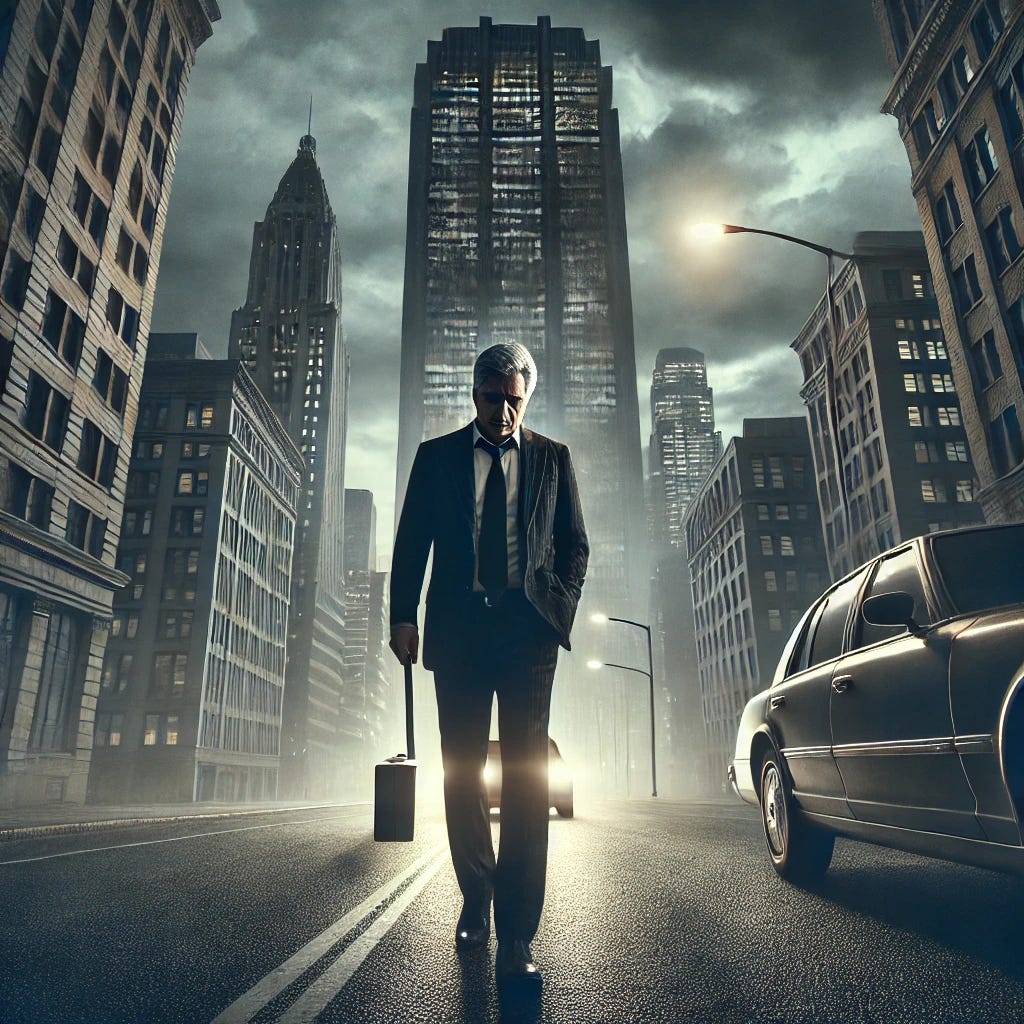What It’s Like Being Insolvent: My 2009 Disaster
Being insolvent is like free-falling off a skyscraper, except you thought you were in an elevator going up. One minute, you're at the top, popping champagne and negotiating deals like a real estate god, and the next, you're dodging collection calls while pretending your Rolex is just a really well-made knockoff.
For me, the aftermath of the Great Financial Crisis in the U.S. wasn’t just a business setback—it was a full-scale, everything-must-go liquidation of my life. Most people don’t remember, but after the U.S. housing market imploded, Toronto had a short but vicious 10-month correction. A blip in the grand scheme of things, but long enough to absolutely destroy me. I was leveraged to the teeth, thinking that the market only went up. After all, Toronto real estate had always been bulletproof, right? Well, turns out even the Titanic was “unsinkable” until it wasn’t.
At the time, I had multiple projects on the go, pre-construction deals that I was sure were golden tickets. But when the financial markets seized up, so did the buyers. Suddenly, banks were looking at me like I was contagious. Financing dried up overnight. Investors who had once fought to get a piece of my deals were now ghosting me like a bad Tinder date. Sales stopped dead. Pre-sale buyers started backing out. The whole house of cards came tumbling down.
And then, the real gut punch: I lost my personal residence. The very thing I was supposed to be the expert in—buying, selling, and developing homes—ended up costing me my own. One day, I was living in a beautiful home, driving a car that screamed "successful developer." The next, I was packing boxes, scrambling to keep my family together, and dealing with the humiliating reality that I, the guy who was supposed to have it all figured out, was officially wiped out.
I remember one particular morning during that time. I had to go downtown for a meeting—one of those desperate, last-ditch efforts to salvage a deal and keep myself afloat. I sat in my car outside the office, gripping the steering wheel so tight my knuckles turned white. I didn’t want to go in. I knew I was about to have a conversation that would confirm what I was already dreading: the banks weren’t going to bail me out. There was no magic investor swooping in. The numbers didn’t work. The money was gone.
The walk from my car to that office felt like a death march. My mind raced through every possible excuse, every way I could spin the situation, but deep down, I knew there was no way out. I was insolvent. Bankrupt in everything but official paperwork. And the worst part? I had no one to blame but myself.
When you hit that kind of bottom, it does something to you. First, you panic. Then you get angry. Then you start bargaining with the universe. “Just give me one more deal, one more chance, and I’ll do it right this time.” And then, eventually, you accept it. You take stock of what’s left—your skills, your experience, your resilience—and you start rebuilding.
It took years to crawl out of that hole. But here’s the funny thing: once you’ve been through insolvency, once you’ve lost everything and had to start from zero, you develop a superpower. You stop fearing risk the same way. You learn how to operate without the blind arrogance that got you there in the first place. You start to see real estate and business differently—not as a never-ending escalator up, but as a game where timing, discipline, and humility matter just as much as vision and ambition.
People always ask me, “How did you recover?” The truth is, slowly and painfully. I started smaller, smarter. I focused on fundamentals. I paid attention to cycles instead of assuming I was invincible. I built back my credibility, one successful deal at a time. And most importantly, I never forgot what it felt like to lose it all.
Being insolvent isn’t just about money. It’s about losing your identity, your confidence, your sense of control. But if you survive it, you come out stronger, sharper, and way less likely to believe your own hype. And if nothing else, you end up with some killer war stories to tell.








